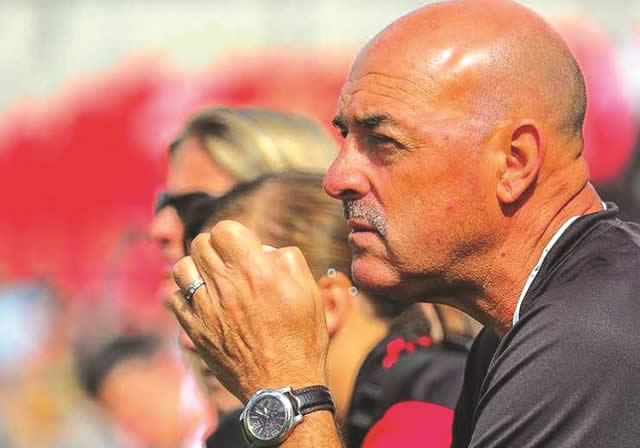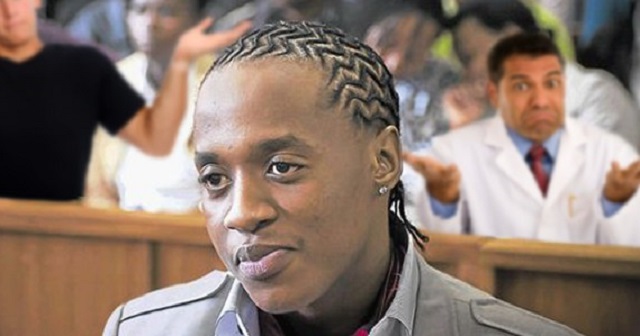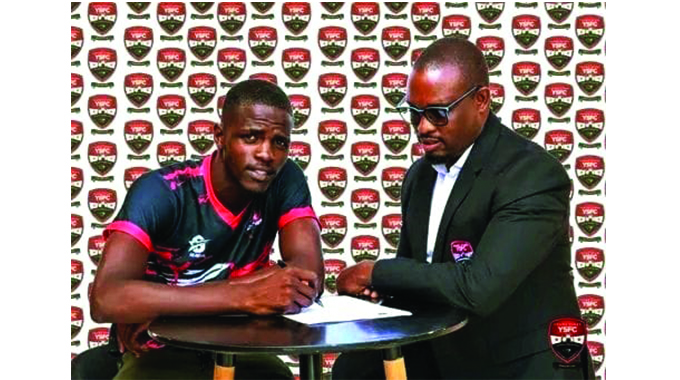The Jungleman returns

Collin Matiza, Harare Bureau
AFTER having been a member and the driving force behind the famous Reinhard Fabisch’s “Dream Team” of the early 1990s, legendary former Liverpool goalkeeper Bruce “Jungleman” Grobbelaar would like to have another dance with the Warriors.
Grobbelaar, now 59, who was twice briefly appointed as player-manager of the Zimbabwe senior team in 1997, recently told our Harare Bureau from his base in Canada that he would like to revive his romance with the Warriors and was confident of bringing back the glory days of the early 1990s, which saw the team turning themselves into one of the most feared sides on the continent when they were under the guidance of the late German coach Fabisch.
The former Liverpool goalkeeper said his heart bled for Zimbabwe when he watched them making an early exit from the just-ended 2017 African Cup of Nations in Gabon and would like to come back into the “trenches” and be part of the Warriors technical department during their qualifiers of the next Nations Cup finals scheduled for 2019 in Cameroon.
Grobbelaar, who won the then European Cup (now Champions League) with English soccer giants Liverpool in 1984, said although he was now based in Canada, Zimbabwe still has a “special place” in his heart and he won’t resist a call for national duty and was prepared to serve in any capacity if approached by Zifa.
But he did not rule out becoming the head coach of the Warriors if given the opportunity by the association.
“As you are aware I love my country Zimbabwe. I have over (the) years committed myself to Zimbabwean football as a player and as a coach. I still have a lot to give back to Zimbabwean football with my years of experience in football (both) in the UK and Africa.
“I have watched the Zimbabwe Warriors team perform during the (last) Nations Cup. I trust that I can bring some great technical ideas to this team. I have made my review on the performance of the Warriors team and also what I think went wrong.
“With the current squad and additions of this team, Zimbabwe could out-perform most teams in Africa. We have players that have the abilities and skills to take on any team in Africa,” Grobbelaar said.
He, however, said that he would not divulge what he would do if given the opportunity to be part of the Warriors technical department.
“(But) I will definitely be able to bring a very experienced technical staff. The Zimbabwean football supporters are the best in Africa and are very passionate and deserve to be honoured. And the only way is by getting to the Finals of the (2019) Nations Cup and qualifying for the (2022) World Cup (in Qatar).
“I have not stopped watching Zimbabwean players playing abroad in Europe and those playing in the South African league. Well, it all depends with our football board Zifa if they need my services. I want people to know that I love my country and ready for the duty if called or hired for the position of national team coach of the Zimbabwe Warriors.
“The possibilities of competing and winning are attainable. I have the plan, the technical knowledge and what needs to be done to have a winning team,” Grobbelaar said.
He also saluted the out-going Warriors head coach Callisto Pasuwa and his technical team for doing a wonderful job of helping Zimbabwe to qualify for this year’s Nations Cup finals in Gabon where they, unfortunately, bowed out in the group stages after first having held North African giants Algeria to an impressive 2-2 draw before losing their next two Group B matches to Senegal (2-0) and Tunisia (4-2).
“I would like to give the team of (Callisto) Pasuwa and his coaching staff some credit for their achievements. As I have said before, I have the plan and a good technical support team ready to work for Zimbabwe and bring smiles and joy to our passionate supporters,” Grobbelaar said.
The former eccentric goalkeeper once took charge of the team in 1997 and, among other achievements, he beat Sudan 3-0 in Khartoum and drew 2-2 with Tunisia in Tunis but lost out on qualifying for the African Cup of Nations when Sudan withdrew.
Grobbelaar then moved to South Africa where he coached a number of that country’s Premiership teams including SuperSport United and the now-defunct sides Hellenic and Manning Rangers.
Former Caps United defender, Darlington Choto, who is Grobbelaar’s close friend and like the legendary goalkeeper is now based in Canada, also revealed that the Liverpool great was keen on becoming the Warriors head coach.
“I recently spoke with Bruce at length about him becoming part of the Warriors technical team and he told me that he was very much interested in taking over the hot seat as he still has some unfinished business with the Zimbabwe national team after briefly coaching them in the late 1990s.
“He feels there’s a lot of potential in the current Warriors squad after watching them playing at this year’s Nations Cup finals in Gabon and he thinks he can help them to scale greater heights in international football.
“I personally believe that he still has a lot to offer in terms of taking the team to another level as he has some vast experience both as an international goalkeeper and coach… He just wants to give back something to Zimbabwean football,” said Choto, from his base in Toronto.
Apart from playing for Liverpool in the 1980s, Grobbelaar was part of Zimbabwe’s “Dream Team” of the early 1990s which agonisingly came close to qualifying for the World Cup finals under the tutelage of the shrewd, late German coach Fabisch.
In that team, Grobbelaar rubbed shoulders with fellow talented players such as speedy winger Peter Ndlovu and his brothers Adam and Madinda, Agent “Ajira” Sawu, Ephraim Chawanda, John “JP” Phiri, Mercedes “Rambo” Sibanda, Rahman Gumbo and Henry “Bully” McKop.
Former Dynamos dribbling wizard Vitalis “Digital” Takawira, Melusi Nkiwane, Paul Gundani, Francis Shonhayi, Willard “Mawiii” Mashinkila-Khumalo, Benjamin Nkonjera, Max Lunga Makanza, Wilfred Mugeyi, Norman Mapeza, Brenna Msiska and Memory Mucherahowa were also part of Fabisch’s “Dream Team”.
Although they failed to reach either the World Cup or African Cup of Nations finals, “the Dream Team” remains hugely popular among local soccer fans.










Comments